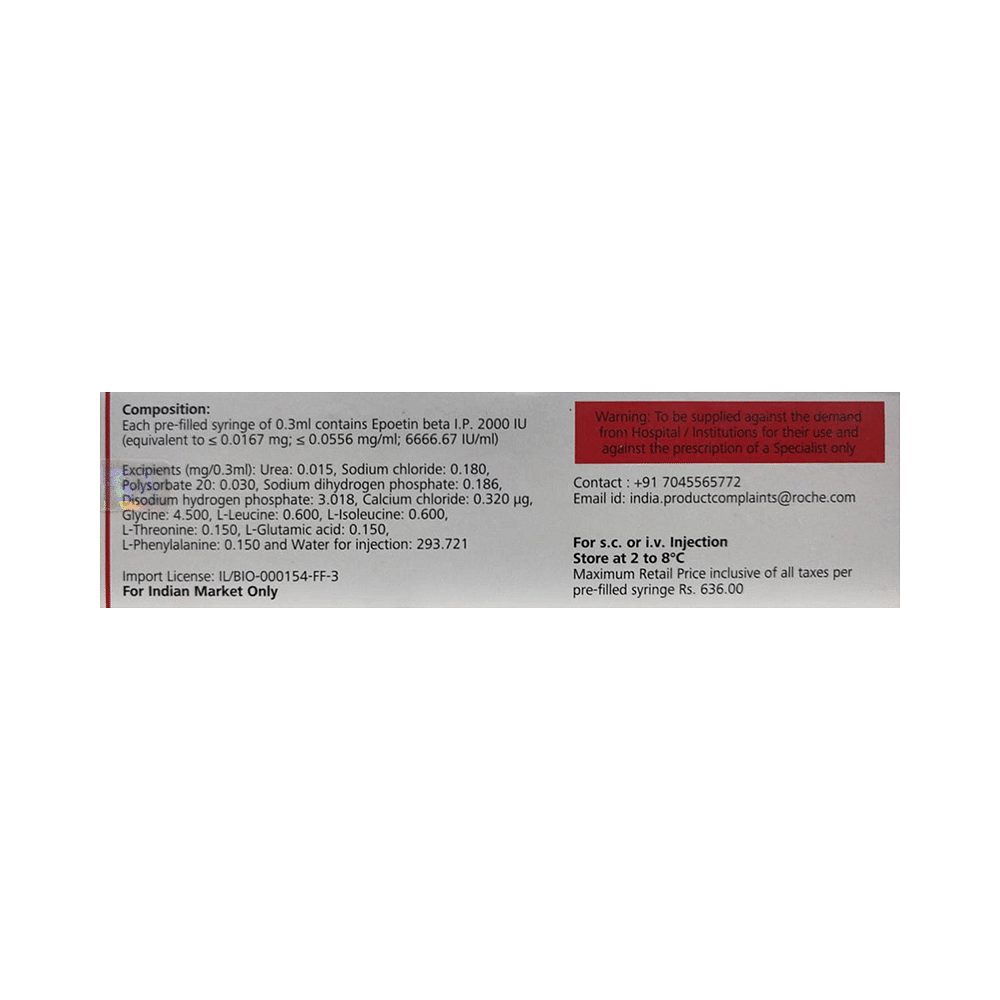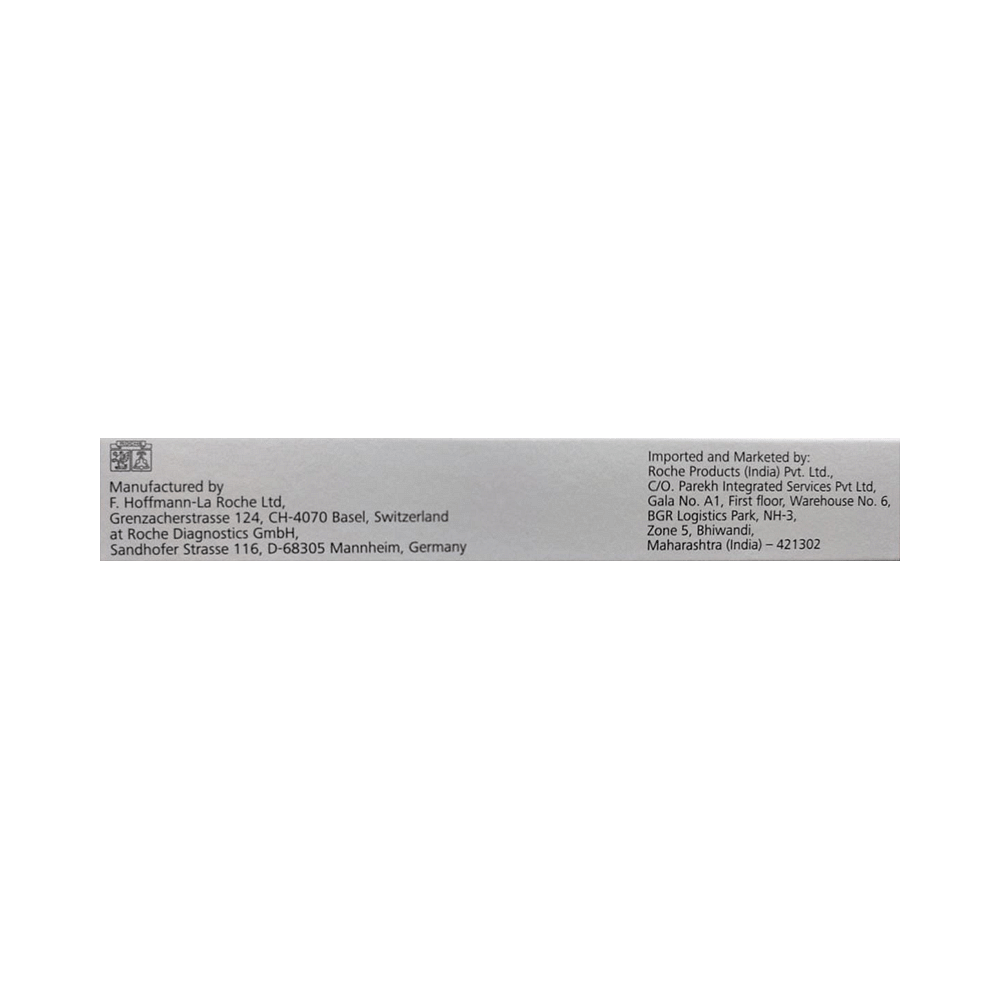



Neo Recormon 2000IU Injection
Salt Composition
Recombinant Human Erythropoietin Beta (2000IU)
Key Information
Short Description
Neo Recormon 2000IU Injection is used to treat anemia in people with chronic kidney disease by stimulating red blood cell production.
Dosage Form
Injection
Introduction
Neo Recormon 2000IU Injection is generally given by a doctor or a nurse. Do not self-administer this medicine at home. The dose depends on your body weight and the severity of your condition. Get the injection regularly until you complete the dose. Iron supplements both before and during treatment may make this treatment more effective. Use of this medicine may cause some common side effects such as headache, diarrhea, body aches, vomiting, and hypersensitivity. If these side effects persist or get worse, let your doctor know. They may be able to suggest ways to prevent or treat them. Before using the medicine, tell your doctor if you have uncontrolled high blood pressure, heart disease, or gout (disease of joint pain). You should also tell him/her what other medicines you are taking in case they affect this treatment. Your blood pressure should be checked often during this treatment by you or your doctor. You may also need other regular medical tests to be sure this medicine is not causing harmful effects. It is not known whether this medicine will harm an unborn baby. Tell your doctor if you are pregnant, plan to become pregnant, or are breastfeeding.
Directions for Use
Your doctor or nurse will give you this medicine. Kindly do not self administer.
How it works
Neo Recormon 2000IU Injection belongs to a class of medicines called erythropoietin-stimulating agents (ESAs). These medicines work by stimulating the production of red blood cells (RBCs) in the bone marrow. From the bone marrow, these RBCs are released into the bloodstream. This helps in treating anemia in patients who have chronic kidney disease or who are undergoing chemotherapy.
Quick Tips
It is given as a single injection under your skin but if you are on hemodialysis, it will be given into your vein. Monitor your blood pressure regularly while taking this medication. Inform your doctor if you notice symptoms of very high blood pressure such as severe headache, problems with your eyesight, nausea, vomiting, or fits (seizures). Your doctor may get your blood tests done regularly to monitor the levels of hemoglobin, blood cells, and electrolytes such as potassium in your blood. Inform your doctor if you had a heart attack or stroke in the month before your treatment, if you have new or increasing chest pain, or if you are at risk of blood clots in the veins. Seek medical help immediately if you develop a rash, ulcers of mouth, throat, nose, genitals, and eyes (red and swollen eyes) preceded by fever and/or flu-like symptoms.


